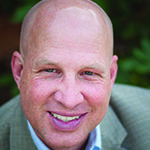 Pick your arena — Calvinism versus Arminianism, moral liberty versus determinism, Rush’s “Freewill” versus Lady Gaga’s “Born This Way” — there’s quite a bit of conversation in the scientific community these days about what philosophers have debated for centuries. That is, are human beings able to choose the good? Or are we humans simply pulled along through the earth by currents of appetites beyond our naming and knowing?
Pick your arena — Calvinism versus Arminianism, moral liberty versus determinism, Rush’s “Freewill” versus Lady Gaga’s “Born This Way” — there’s quite a bit of conversation in the scientific community these days about what philosophers have debated for centuries. That is, are human beings able to choose the good? Or are we humans simply pulled along through the earth by currents of appetites beyond our naming and knowing?
Nietzsche called free will “a theologian’s artifice” invented so the church could “judge and punish.” Kant claimed that if humans are not free to choose the good, then it makes no sense to say we ought to choose a righteous way of life. More recently, Sam Harris has made a small fortune popularizing the truth of determinism in books like Free Will. (I suggest you skip reading Harris, who has an angry ax to grind, and read a real philosopher instead!).
All of this haggling is old news. What’s new news, and a trend worth noting, is that the court of public opinion has started to tilt strongly in the direction of determinism. As philosopher Steven Cave writes, “Determinism, to one degree or another, is gaining popular currency.” In the courtroom, evidence from neuroscience has doubled in a decade. Conversations around gender and sexuality during that same period have pivoted on the fulcrum of a view that such matters are beyond the pale of choice. Maybe it’s because we have scientific firepower to measure what was previously unmeasurable (i.e. brain architecture), or maybe we are just in a cultural moment. But determinism is becoming the axiomatic undercurrent of our day.
Is this a good thing? The best contemporary research suggests that the answer is “probably not.” Studies out of the University of Utah and Florida State University correlate diminished belief in free will with a veritable Pandora’s box of bad outcomes, including:
- A greater propensity to behave immorally (cheating, pilfering, giving in to baser instincts);
- Lower indicators of generosity and gratitude;
- Less willingness to learn from one’s mistakes;
- A higher sense of life’s meaninglessness;
- Lower creativity and higher tendency toward conformity;
- Removal of incentives for altruistic or heroic behaviors.
The list goes on, but you get the point.
Harris, in the face of this, actually rhapsodizes about a “Spirituality Without Religion” (with free will being the hammer of religion), a utopia in which all judgments cease because we no longer have the basis of hating anyone. (If one didn’t choose their violent behavior, how could you hate them for it?) Nice try, but I’m not buying it. Humans did not evolve to be creatures with massive brains only to check those brains at the door at the fork of every decision.
Philosopher Dallas Willard called this view “physicalism” — a deeply flawed myth that “you are your brain.” According to the biblical tradition, such is a deficient definition of personhood. Rather, a human being is embodied spiritual essence. Part of what makes humans of a different order are matters like “agency” and “will.” We have the ability to choose based on things other than the reptile part of our brain.
The Baptist witness has long held to the notion that human beings can, and are responsible for, our free choices. These choices have moral and indeed eternal consequences. Of course, “everything is connected to everything else.” Of course God is provident. Of course we are shaped by our environment and history. But don’t throw the baby out with the bath water. I would suggest we might not give in to a fatalism that sees free will as a passing fad.
